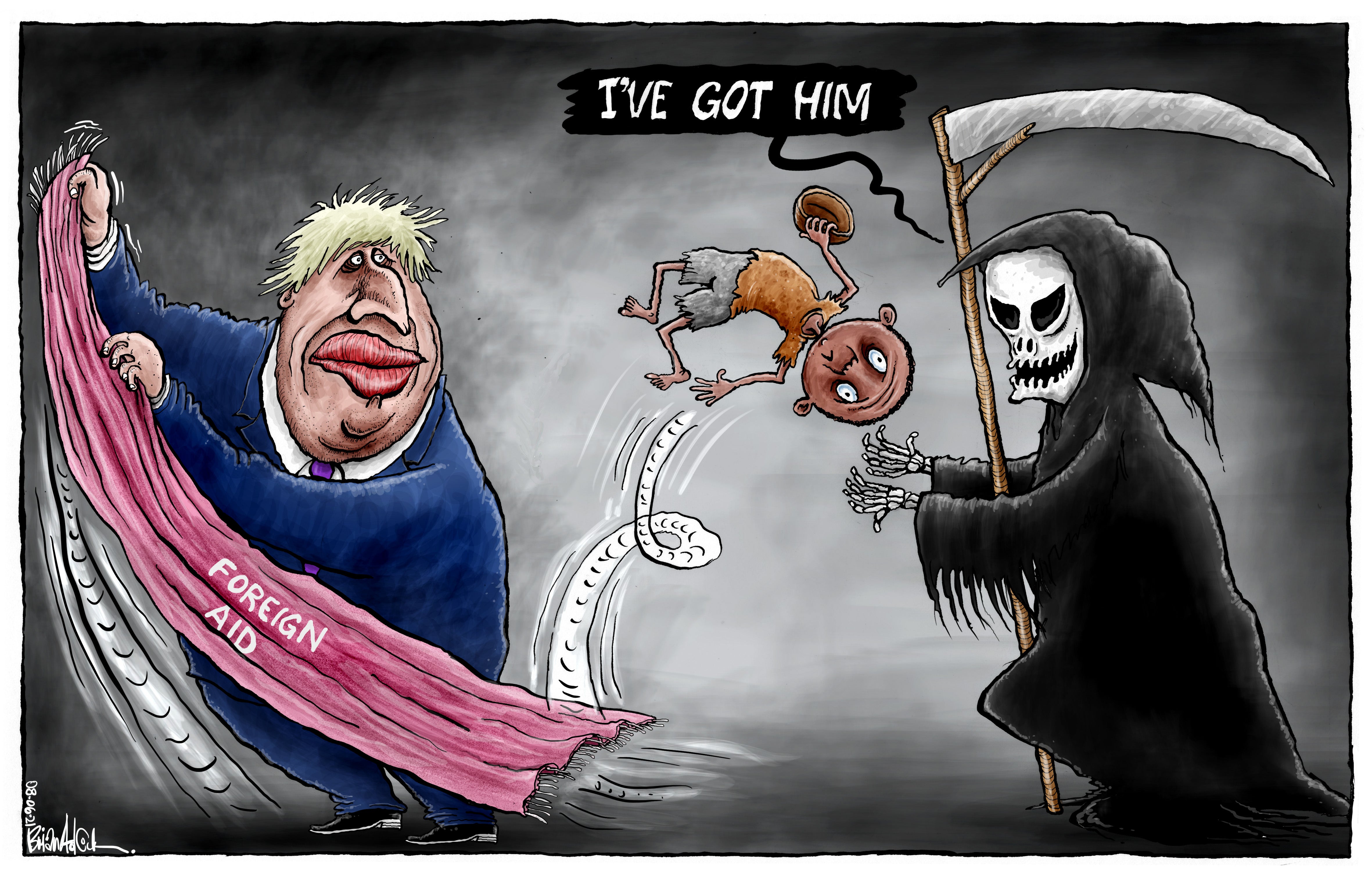Britain has a duty to restore the aid budget
Editorial: The ‘rebels’ have been mislabelled – it is the government that is rebelling against its own 2019 manifesto commitment

To a casual observer unfamiliar with Commons procedure, it might have seemed odd that a debate on a bill establishing a high-tech research agency was thought a suitable setting to reinstate the UK’s target for international aid.
The rebels who wanted to restore the aid budget, and with it Britain’s global reputation, claimed that their ruse was in order. It seems it was not, and that Speaker Hoyle was unwilling to follow Speaker Bercow’s example of muscular chairmanship by allowing the amendment to be called. Thus was the argument closed down – for now. As the speaker made abundantly clear, he wants the Commons to make an “effective” decision on the matter, not merely the debate now scheduled, and that he will ensure it does, and without more delay.
The issue will not go away, therefore, and neither will the shame of what the British government has done, no matter how many concessions it punts around to peel away some of the rebel Conservatives. An emergency debate will indeed be held, albeit with non-binding conseqiences, and the amendment may well turn up again in the House of Lords.
Leaders of the revolt, such as Andrew Mitchell and Tobias Elwood, have declared that they will be seeking other ways for parliament’s wishes to be known and enforced – with the force of law. As was discovered during the Brexit process in 2018 and 2019, there is a wide variety of Commons procedures that can be usefully deployed, some archaic but nonetheless effective, and the speaker has given support to the effort to make the Commons a player in this matter.
The battle, in other words, is not lost, but only postponed. Indeed, the campaign may gain more political and moral impetus since the issue has been forced up the news agenda, and as the public gain a better understanding of the likely – in some cases deadly – effects of the cuts. The British people may be suspicious of the government’s ability to spend their money wisely, but they are not inhumane.
In truth, the “rebels” have been mislabelled. It is the government that is rebelling against its own 2019 manifesto commitment and the law that was passed under Cameron’s leadership a few years ago. It is said that Britain can’t afford such “charity” as it faces the financial consequences of the pandemic, which are real enough. It is also argued by the government’s supporters that the donation of Covid vaccines to the Covax programme, which falls outside the aid budget, is itself an invaluable contribution to the health of developing nations.
This is correct, but the fact is that Britain, like the rest of the west, has to do all these things (and more) in hard self-interest, rather than as acts of charity. To leave war-torn, bombed out, hopeless people to their own devices is to invite wave after wave of refugees to show up at the Channel ports, present themselves as prey to the people-traffickers, and put their lives at risk in the English Channel.
Countries allowed to fester in neglect are much more likely to spawn international terror, as happened in Afghanistan in the 1990s and with Isis in Iraq and Syria. In a pandemic, to quote the cliche, no one is safe until everyone is safe. It is not the case that Britain cannot afford to give international aid, but rather that Britain cannot afford not to give international aid, given the inevitable consequences – for Britain, as well as for the countries in need of our support. It is the right thing to do, and momentum is growing.
Join our commenting forum
Join thought-provoking conversations, follow other Independent readers and see their replies
Comments
Bookmark popover
Removed from bookmarks